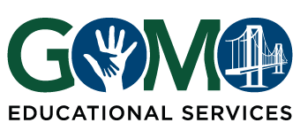Session Description:
One’s mindset, as research on human intelligence has shown, can often determine one’s success even before one begins the challenge at hand. This is particularly true for students. Too often, the task of teaching is lost on day one, when many students either have a negative view of school or of themselves.
Our internal beliefs about our own abilities, skills, and potential, fuel learning habits and ensure success. Stanford psychologist Carol Dweck argues that the pivotal quality separating successful people from their unsuccessful counterparts is whether they think their intelligence can be developed versus believing it is fixed. “There is no relation between students’ abilities or intelligence and the development of mastery-oriented qualities. Some of the very brightest students avoid challenges, dislike effort, and wilt in the face of difficulty. And some of the less bright students are real go-getters, thriving on challenge, persisting intensely when things get difficult, and accomplishing more than you expected.”
How do we achieve such a daunting task?
In this keynote address, attendees will acquire the knowledge and skills of cultivating an achievement mindset by understanding the concepts of Quality Quantifier, Limiting vs. Empowering Beliefs and the Driving Forces Behind Human Behavior.

